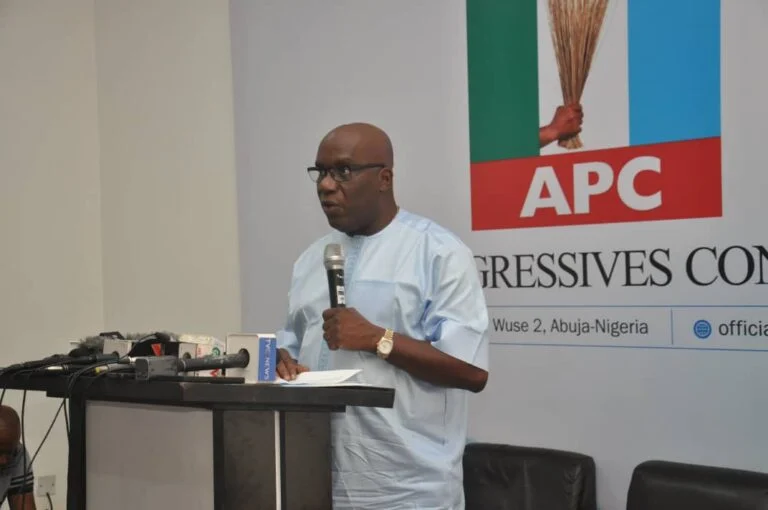Timipre Sylva, minister of state for petroleum, says Nigerians should hold him accountable “for every dollar, every cent” spent on the Port Harcourt refinery.
He said President Muhammadu Buhari wants to leave behind a legacy of functional refineries for Nigerians.
Nigeria has four refineries — two in Port Harcourt and one each in Kaduna and Warri — with a combined capacity of 445,000 barrels per day. All four refineries are non-functional, after being shut down in 2020.
On Wednesday, the federal executive council (FEC) meeting approved $1.5 billion for the rehabilitation of the Port Harcourt refinery.
The approval has since elicited critical reactions from various quarters, particularly from notable Nigerians like Atedo Peterside, Peter Obi, and Atiku Abubakar.
Speaking on Sunday during a Channels Television programme, Sylva said the Buhari administration means well.
“They (Nigerians) can hold me accountable and hold this government accountable for every dollar, every cent on this refinery and ensure that we deliver a refinery that works,” he said.
“What President Muhammadu Buhari wants to leave as a legacy are refineries that are functional.
“That is really where we are looking at because what is going to happen to those refineries will be decided by Nigerians and future administration.”
’18 MONTHS TO COMPLETE REHABILITATION’
The minister noted that the rehabilitation will take 18 months and the first phase will get the refinery to 90 percent operational capacity.
“We’re not lying to Nigerians. We’ve told you that this is going to be in three phases and the first phase is definitely going to be within the tenure of this administration,” he said.
“You should hold us. It is 18 months and we are going to take the refinery to 90 percent of its main capacity and that is what you should hold us to.”
THREE SOURCES TO FUND REHABILITATION
Sylva gave a breakdown of how the government intends to source the $1.5 billion required to repair the refinery.
“Let me tell you how this rehabilitation is going to be funded; it is not going to be all debts, we are not going to borrow all the monies that are going into the rehabilitation,” he said.
“NNPC is going to spend about $200 million from its internally generated revenue sources, while the federal appropriation will put in about $800 million and it is already broken down into three parts.
“The 2020 appropriation will give $350 million, 2021 appropriation will give another $350 million, and 2022 appropriation will give another $100 million, making it all $800 million from appropriation, and then the rest of it will now come from Afrexim Bank.”
‘LOT OF GAINS FOR NIGERIANS’
Sylva said the rehabilitation of the refinery is “one way the government can generate revenue to invest in other sectors of the economy”.
He said the refinery will benefit Nigerians and be commercially-viable “to produce profits for the government”.
The minister added: “This rehabilitation will bring a lot of gains for Nigerians. First, we are gaining from savings in the foreign exchange end, savings from the importation of premium motor spirit (PMS); and we will gain from the operations of the refineries itself.”
Sylva noted that the Port Harcourt refinery, which has the capacity to produce 210,000 barrels per day, cannot satisfy Nigeria’s needs alone.
“This refinery plus Dangote’s refinery, Kaduna refinery and Warri refinery will more than satisfy Nigeria’s requirements,” he added.
“We are headed to a point where Nigeria will become a net exporter of refined petroleum products. So we will be able to satisfy Nigerians and also have excess in exporting these products.”

 BIG STORY3 days ago
BIG STORY3 days ago
 BIG STORY3 days ago
BIG STORY3 days ago
 BIG STORY1 day ago
BIG STORY1 day ago
 BIG STORY2 days ago
BIG STORY2 days ago
 BIG STORY4 days ago
BIG STORY4 days ago
 BIG STORY10 hours ago
BIG STORY10 hours ago
 BIG STORY1 day ago
BIG STORY1 day ago
 BIG STORY4 days ago
BIG STORY4 days ago
































